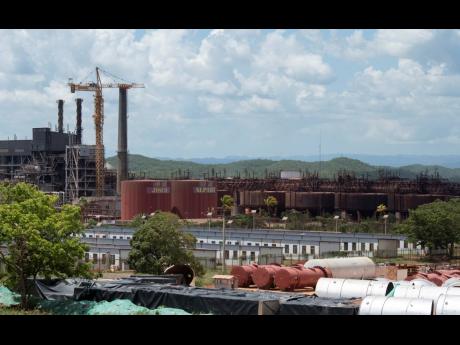Ronald Thwaites | We fi “live and learn”...
T he Gleaner, two Friday’s ago, said that it is “nervous about Alpart”. That is a mild reaction to what is pending. Because what Parliament heard from Minister Montague on Tuesday, September 10, was a pre-emptive announcement of the indefinite postponement at best, and the total collapse at worst, of the hyperbole of many months back heralding the grand resurgence of the bauxite-alumina sector.
Alpart is closing for as long as it will take to decide if the development formally proposed – gas plant and industrial park, too – is worth it at all. That seems to be the raw truth the minister wanted to convey, dressed up in soft-soaping language. He answered none of the nagging concerns.
Everybody knows how cyclical and subject to world trade headwinds aluminium prices are. So how come the savvy Chinese investors bought a 50 year-old, largely obsolete, energy-extravagant plant premised on a US$2 per barrel oil price? And how come they are just finding out about the web of cables and pipes which, Bobby says, will prevent refurbishing while still operating, employing and earning?
And why did he hitch about the direct value of this investment to Jamaica? No levy any more, only a royalty, but can’t say how much; and why no calculation of the inevitable, desperate effect the closure is going to have on foreign exchange earnings, the conveniently ignored balance of trade deficit, not to mention gross domestic product growth projections? It all felt like a cover-up – softening us up for the impending pop-down and trying to mitigate the attendant political embarrassment.
One year ago, in the midst of some euphoric predictions about the bauxite mining sector – and hearing the stories of barren, unreclaimed craters and destroyed communities described by Peter Bunting and Michael Stewart in their Manchester constituencies, and appalled by the obvious falsehood from the government, who in answer to my earlier parliamentary questions about the pace and extent of mined-out land restoration, breezily assured that it was all well done – I moved the following resolution in the House of Representatives. “Resolved that there be carried out a cost-benefit analysis of the Jamaican bauxite and alumina industry in order to determine the prudent and efficient use of this diminishing natural resource”.
In fact, Bunting had raised the issue before, but was treated dismissively by both sides of the aisle. “What heresy”, you could read their minds, “how dare you be questioning the value of this holy cow?” Straight thinking would dictate that these broad and sometimes uncomfortable policy issues are exactly what Parliament should spend its time debating.
Bauxite-Alumina Review
So, predictably, there has been no interest by either political side in the matter. (It’s the same, by the way, with a similar resolution regarding the moribund cane and sugar industry.) To his credit, Minister Montague now says that a review of the bauxite-alumina industry is being undertaken by the Planning Institute of Jamaica, but cannot say when this will be completed, and did not say what are the terms of reference given them.
Last Tuesday, none of the members of parliament from St Elizabeth, whose communities will relapse into impoverishment when Alpart closes, had anything to say. Backbenchers are truly ministers of silence.
There is evidence that the extraction of bauxite has contributed greatly to mashing up peasant culture and rural economy in Jamaica. Stable families, the backbone of any healthy culture, most of them food producers too, found themselves displaced and often dispossessed by the bulldozing – and their lands have never been restored at all or to levels of high productivity. Migration to inner-city pens and to the lure of ‘foreign’ have been social consequences, the negative effects of which have, at least, to be balanced if indeed they do not far exceed the once high-paying jobs, the social contributions and the Capital Development Fund (which no longer really exists).
These concerns apply far beyond the Alpart curtilage. They are at the heart of the resistance to Mining Lease 173. To mine in Southern Trelawny will compromise, if not destroy, a way of life which has great social integrity and economical sustainability – quite unlike the wasted asset of the red dirt.
There are choices to be made, hopefully on the basis of empirical evidence and widespread consultation. We should engage the data and fair analysis before we lurch into more irreparable mistakes and short-sighted decisions.
Ronald Thwaites is member of parliament for Kingston Central and opposition spokesman on education and training. Email feedback to columns@gleanerjm.com.

